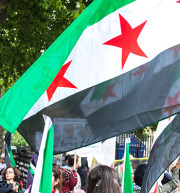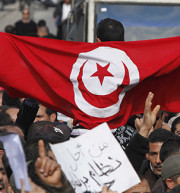
This page summarizes cases raised with Syria by the Special Rapporteur between May 1, 2011, (when the Special Rapporteur took up his functions) and February 28, 2017 (the date of the last public release of communications). Communications are released to the public once per year. This page also contains observations on these communications and on responses received from Syria. Communications and observations are divided into sections based upon which observation report they originally appeared. Each communication is referenced as urgent appeal (UA), allegation letter (AL), joint urgent appeal (JUA) and joint allegation letter (JAL) - the hyperlinks lead to these documents. This is followed by the date the communication was issued, as well as the case number and the State reply (also hyperlinked if available). Summaries and communications are published only in the language of submission (in the case of Syria, English). First Report (May 1, 2011 to March 15, 2012) Joint urgent appeal, 17/6/2011. Case no. SYR 7/2011. State Reply: None to date. Alleged killings of protesters, excessive use of force and denial of life-saving medical treatment. Joint allegation letter, 29/6/2011. Case no. SYR 6/2011. State Reply: 25/10/2011. Alleged arrest and detention of human rights activists following peaceful... Continue reading →

GENEVA – A group of United Nations independent human rights experts* today emphasized that the UN Security Council’s decision not to refer the situation in Syria to the International Criminal Court (ICC) leaves the door wide open for new atrocities in the ongoing conflict. “The double veto last week to a resolution referring the situation in Syria to the ICC is likely to expose the Syrian population to further gross human rights and humanitarian law violations,” they said. “The failure to hold those responsible for the violations to account may fuel further atrocities.” The human rights experts stressed that “given the absence of prosecution at the domestic level it was the UN Security Council’s responsibility to refer the situation to the International Criminal Court.” “Referring the situation in Syria to the ICC would have been an important and most necessary step both to protect civilians against continued and future violations by all sides to the conflict, and to curb impunity for the grave violations of human rights and humanitarian law, some amounting to crimes against humanity,” they noted. In March, in light of its serious concern and the gravity of the situation in relation to enforced disappearance in the country, the UN Working Group on enforced or involuntary... Continue reading →

The Journal of Global Ethics has published an essay by Maina Kiai, in which he reflects on the first three years of his mandate, and the global state of assembly and association rights three years after protests exploded in Tunisia, sparking the Arab Spring. The essay, “Three years after Tunisia: thoughts and perspectives on the rights to freedom of assembly and association from United Nations Special Rapporteur Maina Kiai,” is available for free download to the first 50 people; subsequent access is by purchase only. Although Kiai’s mandate was created in late 2010 against the backdrop of shrinking space for civil society, a massive and growing global protest movement has grabbed most of the headlines since 2011. Kiai argues that the mandate has made a measurable impact – having helped raise awareness of repressive NGO laws, provided technical assistance to governments to strengthen assembly and association rights and developed soft law. But perhaps the most important work of the mandate, he argues, has been its contribution to a better understanding of just how important the rights to freedom of peaceful assembly and association are. “These rights satisfy people’s fundamental desire to take control of their own destinies,” Kiai writes. “They need to speak out, to work together... Continue reading →

A group of UN human rights experts* today warned that the scale and gravity of the violent crackdown in the Syrian Arab Republic continues unabated, and reiterated their call for an immediate end to the violent strategies adopted by the Government to quash the on-going demonstrations. “We continue to receive reports on systematic use of excessive force resulting in killings and injuries; allegations of torture, enforced disappearances, arbitrary arrests and detention of protestors; targeting of human rights defenders; and unjustified limitations on freedoms of peaceful assembly and expression,” the independent experts said. Arbitrary executions: “The indiscriminate use of heavy artillery against demonstrators cannot be justified; no State is allowed to use its military force against an unarmed civilian population regardless of the situation prevailing on the ground,” said the UN Special Rapporteur on extrajudicial, summary or arbitrary executions, Christof Heyns. “The killings that result are clearly arbitrary executions and punishable under international law.” Torture: “Syria has disregarded, and continues to, every international norm against torture and ill-treatment,” said the UN Special Rapporteur on Torture, Juan Méndez. “Its leaders must cease such acts immediately and... Continue reading →